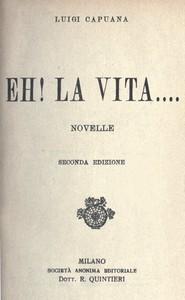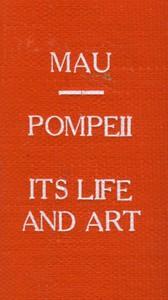|
|
Read this ebook for free! No credit card needed, absolutely nothing to pay.Words: 182612 in 70 pages
This is an ebook sharing website. You can read the uploaded ebooks for free here. No credit cards needed, nothing to pay. If you want to own a digital copy of the ebook, or want to read offline with your favorite ebook-reader, then you can choose to buy and download the ebook.

: King Horn Floriz and Blauncheflur The Assumption of Our Lady by Lumby J Rawson Joseph Rawson Editor McKnight George Harley Editor - Romances English; Mary Blessed Virgin Saint Legends; English poetry Middle English 1100-1500 Early English Text Society@FreeBooksWed 07 Jun, 2023 PREFACE The triple labour involved in editing three independent works in one volume will, it is hoped, serve as an excuse for some of the shortcomings of the present publication. Under the circumstances it has been impossible to make the work as definitive as might have been the case with a single text. For example, while I have been able to print the three existing manuscript texts of King Horn, of the other two poems, the textual material is not nearly so complete. The texts, it is hoped, are accurately printed. The credit for this is due, in large measure, to Dr. Furnivall,--who has read with the MSS. the proofs of all the British Museum texts,--and to the proof-readers at Oxford and Cambridge. The notes to King Horn represent a good deal of labour, and may, I trust, prove useful. The glossary, though not so complete as that in Wissmann's excellent critical edition of King Horn, is intended to fit the volume, and to supply explanation of words and uses of words not intelligible to ordinary readers of Early English Texts. It is my pleasant duty to acknowledge assistance from various quarters. I am indebted to the libraries of the British Museum and Cambridge University, and the Bodleian library at Oxford for the use of manuscripts; also to the Duke of Sutherland for permission to copy the text of Floris and Blauncheflur from the manuscript in his private library; also to the Cornell University library for conveniences placed at my disposal in the preparation of this volume. I must also acknowledge timely words of advice from Prof. J. M. Hart, notes on Layamon from Dr. B. S. Monroe, and assistance in proof-reading by Prof. W. Strunk, jr. But above all I must acknowledge the less apparent work of Dr. Furnivall in preparing the texts for press, a work the amount of which one who has not edited for the E.E.T.S. is not likely to realize. G. H. M. K. INTRODUCTION. KING HORN. ? 1. SETTING OF THE STORY. Standing apart from these largely conventionalized tales are the stories of Havelok and King Horn. These are supposed to have been among the first products of the second growth of English story. They seem to preserve, more than the other, later romances, their primitive traits, and are hence usually classed as English, or Germanic, in origin. ? 2. VERSIONS. But with all this difference of detail, the story in its essential elements is the same in the two versions. Wissmann, in the introduction to his critical edition, says, "der franz?sische roman weist kein einziges notwendiges bindeglied, keinen sch?nen altert?mlichen zug auf, den das englische gedicht, King Horn nicht enthielte; dieses dagegen hat trotz seines geringen umfanges, eine reiche von alten, wahrhaft poetischen motiven jenem voraus." And further, "aus alle dem ergibt sich, dass K. H. keine bearbeitung des franz?sischen romans sein kann." Wissmann's further conclusions, however, are less tenable, when he continues: "das umgekehrte verh?ltniss dagegen ist nicht nur denkbar, sondern bis zu einem gewissen grade sogar notwendig; eine ?ltere quelle als das lied von King Horn f?r R. H. vorauszusetzen sind wir durch nichts berechtigt." Limited space forbids a thorough-going comparison of the two versions. The essential elements of the story are in each case nearly the same. In the French version again Horn the prince with his companions is set afloat from Suddenne in an open boat, arrives in Bretaigne, is hospitably received by King Hunlaf, is loved by the princess Rigmenil, from whom he receives a magic ring, is betrayed by Wikele, one of his companions, and is exiled from Bretaigne. He takes ship for Westir, the court of King Godreche, and is well received by the king and his two sons. He distinguishes himself in all things, and is loved and wooed by the princess Lemburc. But after delivering the Irish kingdom from an African invasion, he is recalled by a messenger to Bretaigne, where, after vanquishing his rival Modun in a tournament, he rescues Rigmenil and himself plays the part of bridegroom at the wedding prepared. He then repairs to Suddenne, and after ridding his father's kingdom of the invaders, is warned in a dream of Wikele's second treachery, and returns again just in time to save his bride from a forced marriage with Wikele. With the death of Wikele and the establishment of Horn's loyal friend Haderof in Ireland and of Horn and Rigmenil in Suddenne, the French story ends. Free books android app tbrJar TBR JAR Read Free books online gutenberg More posts by @FreeBooks
: Eh! la vita....: Novelle by Capuana Luigi - Fiction; Short stories Italian IT Racconti@FreeBooksWed 07 Jun, 2023

: Anna Fleming: Historiallinen romaani by Ivalo Santeri - Historical fiction; Finnish fiction 19th century@FreeBooksWed 07 Jun, 2023
|
Terms of Use Stock Market News! © gutenberg.org.in2025 All Rights reserved.






